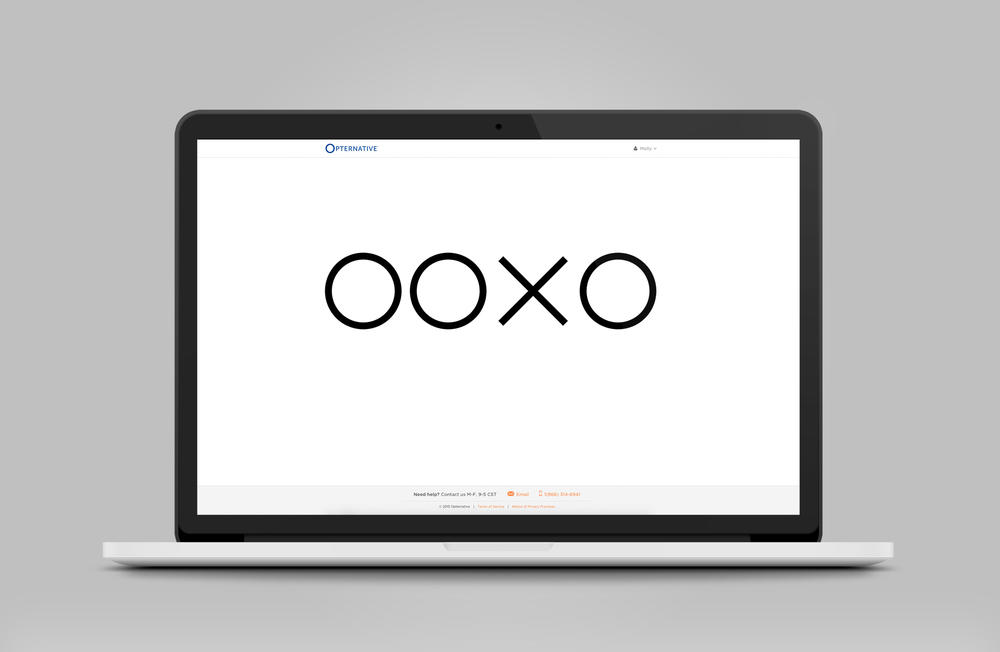Section Branding
Header Content
Online Vision Tests Are Legal In Georgia, But Maybe Not For Long
Primary Content
There’s nothing unusual about buying things online, but what about getting a vision test via the Internet? Only one company offers this service in the U.S. And it’s facing relentless criticism from eye care professionals. A bill on Gov. Nathan Deal’s desk would ban it in Georgia, and other states have already taken that step.
It’s called Opternative. To take it, you need a computer, a smartphone, and a completely dark room.
The site asks for my shoe size to make sure I’m the right distance from the screen. After marking my place with my keys, I’m ready to start. It’s a lot like a standard vision test. But there’s no one asking “is this better? how about this, or this, or this?”. Instead, you use your phone’s web browser to answer questions about what you see.
“We’re trying to identify how bad your vision is. So, we’re kind of testing your vision to failure, is how I’d describe it,” said Aaron Dallek. The Chicago-based entrepreneur is CEO of Opternative .
He co-founded the company with an optometrist, who was searching for ways to offer eye exams online. Dallek says 40,000 patients have used Opternative. The test is free. But you’ll pay $40 if you want a prescription for glasses or contacts, or $60 if you want a scrip for both.
It’s available in 32 states. That includes Georgia, but maybe not for long.
This year, state lawmakers passed a bill that would ban online eye exams. The sponsor, Rep. Earl Ehrhart (R-Powder Springs), ridiculed Opternative while speaking to the House Regulated Industries Committee.
“They’re [Opternative’s patients] required to use their computer and measure a certain distance away from their computer using their shoe. That’s why the company claims for the exam to be accurate. That’s fairly difficult to believe. I think our trained optometric doctors under their current protocols and our trained ophthalmologists go a little further than the shoe standard in their training and education.”
Gov. Nathan Deal hasn’t taken action on the bill, but other states are moving quickly to ban online eye exams.
Regulators in Michigan sent Opternative a cease and desist order, while Indiana’s ban takes effect in July.
Atlanta optometrist Minty Nguyen took the test for herself, and she has pretty strong feelings about it. I asked her if she thought it should be banned.
“I agree with that completely, 100 percent,” Nguyen said without hesitation.
Nguyen likes that Opternative asks patients about their overall health, or if they’re having trouble with their vision. But she’s skeptical of its accuracy, saying there are too many variables for a patient to mess up.
“And again, it’s not for me to make any more money as an optometrist. It kind of encourages patients to ignore the health portion of their eye exam, which is key. You don’t want to go blind. It’s one of your most important senses,” she said.
In a statement, the American Academy of Ophthalmology said the test may be suitable for people aged 18-39, who need an update for their prescription…but only as a follow up to regular visits to an ophthalmologist.
The American Optometric Association goes even further. They want the FDA to pull Opternative from the market.
CEO Aaron Dallek insists the test is not a replacement for a full exam.
“And we recommend patients get a comprehensive eye health exam every two years. And some people less often, but that’s their choice. That’s part of the free market, for patients to be able to choose what’s best for them.”



